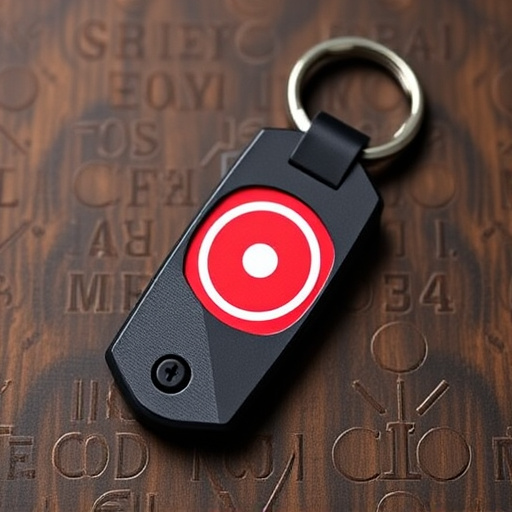Hidden Self Defense Keychain Tools operate under varying global legal frameworks. Local laws govern their use, from age limits to licensing and carrying restrictions, balancing individual protection with public safety. Understanding and complying with these regulations is crucial to avoid penalties. Consumer rights and safety standards, like the EU's GPSD, ensure product quality and functionality. Retailers must adhere to legal requirements through regular compliance checks.
“Ensuring keychain safety is paramount, especially with the growing popularity of hidden self-defense tools. This comprehensive guide navigates the legal framework surrounding these compact defense devices, highlighting key regulations and state-specific requirements. From device categories to retailer compliance checks, we explore how to identify safe and legal keychain weapons. Understand your rights and stay informed about safety standards for peace of mind while carrying a concealed defense option.”
- Legal Framework for Self-Defense Tools
- Keychain Device Categories and Regulations
- State-Specific Requirements for Hidden Weapons
- Compliance Checks for Retailers and Distributors
- Consumer Rights and Safety Standards
Legal Framework for Self-Defense Tools
In many jurisdictions, the legal framework surrounding self-defense tools, including hidden keychain gadgets, is evolving to reflect societal changes and growing concerns for personal safety. These laws vary widely across countries and states, but a key consideration is always the balance between an individual’s right to protect themselves and public safety interests. Tools like hidden keychain weapons are often seen as legitimate self-defense measures when used responsibly, especially in places where personal security risks are high.
However, legal requirements for such devices typically include age restrictions, requirement for proper licensing or registration, and rules on where and how they can be carried and displayed. It’s crucial to understand these regulations, as possession of a hidden self-defense keychain tool without adhering to local laws can lead to severe consequences, including fines, imprisonment, or both. Always check your region’s specific legislation before considering the acquisition of any self-defense equipment for peace of mind and legal compliance.
Keychain Device Categories and Regulations
Keychain safety devices, often touted as hidden self-defense tools, fall under various categories and are subject to distinct legal regulations depending on your location. These regulations can range from strict restrictions on certain types of devices to no specific laws governing their use. Typically, these devices are categorized based on their design, functionality, and potential for harm.
One category includes simple keychain tools designed primarily for convenience, such as bottle openers or small screwdrivers. Such items generally face minimal legal restrictions. Conversely, more advanced self-defense keychains equipped with sharp blades, electrical charges, or other potentially dangerous features may be subject to stringent regulations. It’s crucial to understand the local laws and guidelines governing the possession and use of these devices to ensure compliance and personal safety.
State-Specific Requirements for Hidden Weapons
Different states in the US have varying laws regarding hidden weapons, including those incorporated into self-defense keychain tools. It’s crucial to understand these state-specific requirements before purchasing or carrying a hidden self-defense keychain tool. Some states explicitly prohibit the possession of concealed weapons, including those designed to fit on keychains, while others allow certain types under specific conditions.
For instance, states like California have stringent regulations, often requiring permits for even openly carried firearms, let alone hidden ones. In contrast, more lenient states might have less restrictive laws, allowing citizens to carry concealed weapons with minimal to no permit requirements. Always check your state’s legislation to ensure compliance and avoid any legal repercussions when carrying a hidden self-defense keychain tool.
Compliance Checks for Retailers and Distributors
Retailers and distributors of hidden self-defense keychain tools must adhere to strict legal requirements to ensure product safety and compliance. Regular compliance checks are essential to verify that these compact defense devices meet the necessary standards, particularly regarding material quality, construction, and functionality. By conducting thorough inspections, regulatory bodies can guarantee that consumers purchase products that effectively serve their intended purpose without compromising safety.
These checks encompass examining the materials used in manufacturing, ensuring they are non-toxic and durable, and verifying that the tools function as advertised. Distributors bear the responsibility of staying informed about legal mandates and industry best practices to avoid selling substandard or illegal items. Compliance is not just a legal obligation but also a commitment to providing customers with reliable self-defense options tailored to their needs.
Consumer Rights and Safety Standards
When considering a Hidden Self-Defense Keychain Tool, it’s crucial to understand consumer rights and safety standards. Many countries have stringent regulations in place to protect consumers from harmful or defective products. These regulations cover various aspects, including material quality, construction, and functionality, ensuring that personal defense tools meet specific safety benchmarks.
For instance, the EU’s General Product Safety Directive (GPSD) and similar frameworks in other regions mandate that manufacturers conduct thorough risk assessments for their products. This means that any hidden keychain tool designed for self-defense must adhere to strict criteria to prevent unforeseen dangers. Consumers can rely on these standards, knowing that their safety is a top priority when purchasing such devices. Additionally, understanding local consumer rights empowers individuals to make informed decisions and take appropriate action if their rights are violated.
When it comes to keychain safety devices, understanding the legal landscape is paramount. With varying regulations across states regarding hidden self-defense keychain tools, consumers must stay informed to ensure compliance and personal safety. This checklist of legal requirements covers key aspects from device categorization to retailer compliance checks, empowering users to make informed decisions while navigating the intricate web of regulations surrounding these compact defense mechanisms. Remember, knowledge is the ultimate shield; stay vigilant and stay safe.
